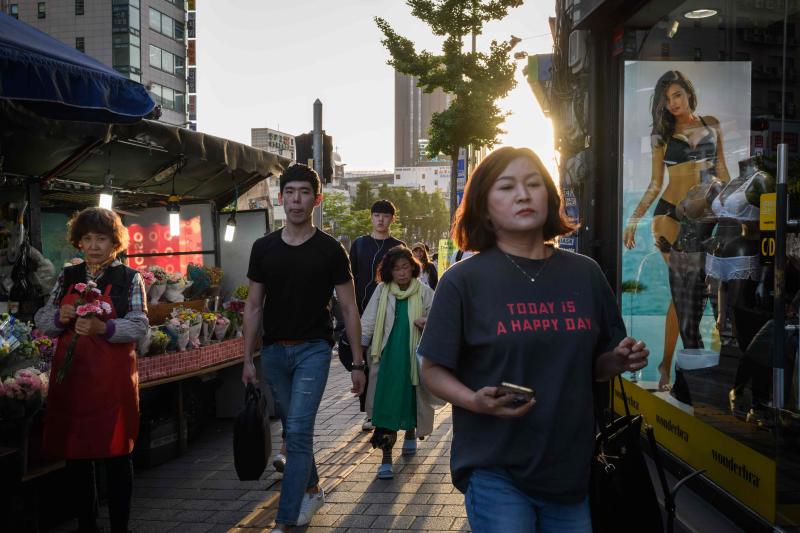South Korean women boycott spending on first Sunday of every month to protest against 'pink tax'
Sign up now: Get insights on Asia's fast-moving developments

A group of South Korean women boycotted all types of spending, aiming for zero expenditure in a day, to show society that without female consumers, industries will suffer a considerable blow.
PHOTO: AFP
SEOUL (KOREA HERALD/ASIA NEWS NETWORK) - A group of South Korean women has decided to stop spending money on the first Sunday of every month, in a move to protest against gender discrimination.
The campaign, started by a Facebook group called "Female Expenditure Strike", hopes to raise awareness of the damage done by advertisements that objectify women, gender discrimination and the "pink tax", which refers to the extra amount that women often pay for goods and services compared to men.
On Sunday (July 1), the group boycotted all types of spending - including food and transportation - aiming for zero expenditure in a day to show society that without female consumers, industries will suffer a considerable blow. It aims to continue the move on the first Sunday of every month.
The group has more than 5,000 followers on Twitter and more than 300 on Facebook.
Those who took part in the boycott on Sunday updated their social media accounts with photos of self-packed lunch boxes, cancelled plans to eat out, and rides on bicycles to workplaces.
The idea originates from a women's strike in Iceland in 1975, when 90 per cent of women there stopped working for a day, including cooking and looking after children, under the slogan "When women stop, the world stops".
Vigdis Finnbogadottir, a divorced single mother, who became the world's first woman to be democratically elected as a head of state in 1980, credits the strike as what made her election possible in Iceland.
Finnbogadottir held her post for 16 years, and Icelandic children grew up thinking that being a president was a woman's job, with Iceland becoming known as "the world's most feminist country".
In South Korea, rather than pulling out from work, women have decided to show their economic power. Instead of ceasing work, they have chosen not to spend once a month.
Under the Facebook group's campaign, the money women save on this day goes to their savings, preferably in amounts that include the numerals 3 and 8, to indicate International Women's Day on March 8. When choosing which bank to deposit the savings, the proportion of female to male employees a bank hires is a pertinent point for these boycotters.
Some have voiced complaints over merchandise targeting women to supposedly accentuate their "femininity", such as suit jackets with fake pockets that are there just for aesthetic purposes. On the other hand, products for men usually focus on utility.
Wrinkle-free pants for men, for instance, are not only cheaper but are more utilitarian in terms of mobility and comfort. Citing this as a case of pink tax, women suggested online that they should purchase certain items from the men's section instead.
School uniforms for female students are also criticised for being more figure-hugging than necessary compared to male versions.
"Since I started earning money, I have never been free of the effort to adorn my looks," said a 29-year-old office worker in support of the new campaign, who declined to be named.
"This society indoctrinates the thought that women, regardless of how successful they are in their career, are without much worth if they are not appealing to male eyes," she said, explaining why she decided to join the boycott.
"It's about time that companies realise that they cannot continue to sell products while undermining women the way they do."


